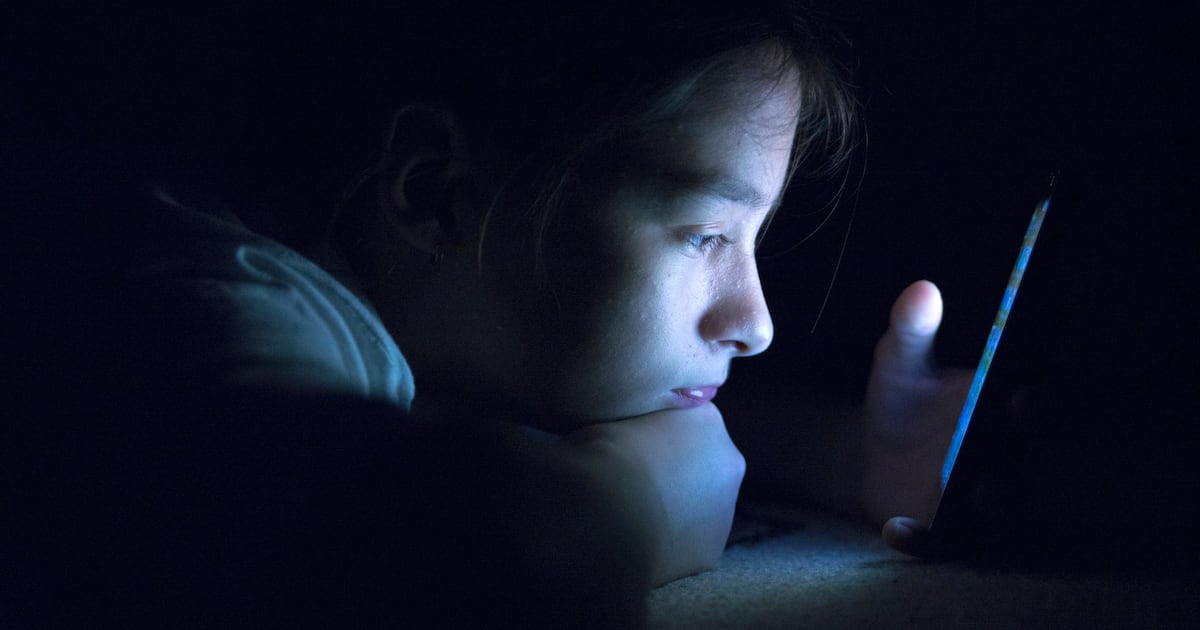When back to school time arrived a few weeks ago, it brought a sense of excitement and foreboding in our household – for parents and children alike.
After getting the new school uniforms fitted, buying the overpriced sports gear and updating the school run logistics, there is the additional worry of managing smartphone use.
On the back of Netflix’s miniseries Adolescence and that the best-selling book Anxious Generation got such attention here in Ireland earlier this year, it is clear to many of us that social media is actually making us asocial.
Should we avoid giving our kids any such devices? Should we try to become tech-savvy helicopter parents and micromanage them? Or, from sheer exhaustion should we just give in and wing it? Moreover, as if the whole thing was not tricky enough, we now have to figure out AI chatbots.
All in all, a minefield.
My wife, Sinéad, and myself have three children, the youngest of whom (13) just started secondary school. Like most kids of that age, she sees the phone as an important element of her social life. We have delayed as long as possible but the pressure to “get a phone” has been immense. We know about all the glaring evidence of how damaging social media can be for kids. So what to do?
Firstly, it helps a lot if the school has strong policies restricting phones. This really helps kids resist the peer pressure, letting them focus on their classes without the endless distraction of social media. To that end, the government is encouraging schools to implement sensible policies restricting access and usage. It also helps parents a lot to be able to link up with other parents to fight the battles together, and so many parents are joining up to “smartphone free pacts” around Ireland.
The good news is that there are alternative options available for parents who after delaying for as long as possible, have decided to buy their kids a smartphone but do not want the full blast of nasty social media.
Before the summer holidays, in preparation for secondary school we bought our daughter a Balance Phone. Launched by a Spanish company nine months ago, it has all the functional apps your teen might need: Revolut, Uber, Spotify, Google Maps.
WhatsApp, which can be problematic, can also be installed but only if the parents wish to do so. The phone, most importantly, prevents the installation of addictive apps that leads to hours of mindless scrolling. So, no addictive TikTok, no Snapchat, no YouTube and no gambling apps.
Our experience with the Balance Phone has been very positive. Our daughter is given a set time of usage per day and it is completely switched off between 9pm and 7am, all of which is controlled from the parents’ phone.
There are other advantages apart from avoiding screen addiction and distraction. It is also better from the point of view of privacy as fewer apps on the phone mean far less data is being gathered and the phone is less vulnerable to hacking. It is also cheaper and easier to use.
Some people might argue that it is the responsibility of the tech industry to make the internet safe for kids, and the job of EU and Irish regulators to make sure they do. That is quite correct, but the story of how internet law came about explains why it is such a difficult industry to regulate.
In the 1950s, a Los Angeles bookstore owner was arrested for selling “obscene” books. The case went all the way to the US supreme court (case Smith vs. California, 1959). He claimed, with some justification, that he was just a distributor and not a publisher. There was no way he could be held responsible for all the contents of all the books he sold. He won the case.
When the modern day internet took off in the 1990s, websites were being sued for content users had uploaded. The principle of the website owners being distributors and so not responsible for the content, unlike publishers, was confirmed by the US Congress in the famous Section 230 law, which still structures the internet today.
Whether it is still a good law or not is a big debate. However, this is why social media companies are not liable for the millions of pieces of content uploaded to their platforms every day and they are not required to monitor those posts for illegal or harmful content. Yes, the EU is trying to tackle this issue but it will take several years at least – if ever – before social media in my view could be considered “safe”.
Many experts now agree it is best to delay for as long as possible giving your kids a smartphone with social media. If you do make the decision buy a smartphone for them going back to school, as we did for our daughter, then maybe consider a safer option such as the Balance Phone.
Preferably without the AI chatbots.
Barry Andrews is a Fianna Fáil Member of the European Parliament

